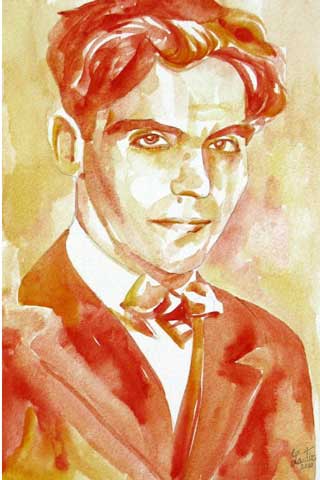Play (1933)
by Federico García Lorca
Translated by Richard L. O’Connell and James Graham Lujan
Directed by Danielle Fauteux Jacques
Composer/Music Director: David Reiffel; Lighting Design: Chris Bocchiaro
Orchestra: Julia Alvarez, Violin; Frank Schuth, Cello; Grace Trapnell, Cello; Dana Block, Accordion; Meagan Michelson, Clarinet
Apollinaire Theatre Company
Port Park, Chelsea, MA
July 8 – 26, 2015
With Mariela Lopez-Ponce (Mother), David J. Castillo (Bridegroom), Dana Block (Neighbor), Liz Adams (Mother-in-Law), Anneke Reich (Wife), Mauro Canepa (Leonardo), Stacey-Ann Burrell (Little Girl), Ann Carpenter (Servant), Tony Dangerfield (Father), Karoline Xu (Bride), Grace Trapnell (Girl 1), Julia Alvarez (Girl 2), Frank Schuth (Youth), Aina Adler (Woodcutter 1), Meagan Michelson (Woodcutter 2), John Scala (Woodcutter 3), Liz Adams (Moon), Brooks Reeves (Death)

The Bride (Karoline Xu), who comes from a wealthy family, is in love with Leonardo (Mauro Canepa), not the Bridegroom (David J. Castillo), and though she believes that out of duty she should go through with her wedding, she can’t really pull herself away from her beloved. Leonardo, equally upset about his marriage to his Wife (Anneke Reich), seems destined to make a go for it with the Bride, despite prevailing social forces. As suggested by the title, things do not turn out well.
This lovely production of the simple, but fraught, play by Lorca takes place outdoors, at sunset, then under the stars, and in several locations around Port Park in Chelsea. It rained a little at the beginning of the performance I saw, but things went on anyway.
The well-populated cast tells a straightforward, though tragic, tale. The Bride, played with demure sensuality by Karoline Xu, resides at one end of the social and emotional spectrum and her beloved, Leonardo, portrayed dashingly and with anguished intensity by Mauro Canepa, hovers at the other end.
In the setup, we encounter Leonardo’s wife, rendered with charm and nuanced earthiness by Anneke Reich, who seems not to deserve Leonardo’s betrayal, making this tragedy of cross-class frustration that much more anguished.
The second part of the play – after the lovers run off – is a great gambit requiring the audience to move to two alternate locations. Each of those, vividly illuminated, and the various surrounding spaces – on overhead trestles and little mounds – are used effectively.
The music in this show is strikingly good. A vocal duo by Anneke Reich (Wife) and Liz Adams (Mother-in-Law), who both have penetrating contraltos, is notably effective. The musical compositions by David Reiffel are searing in an appropriately Cubist way and capably and dramatically performed by the orchestra.
The energetic cast does a fine job overall conveying the combination of tumult and disaster in this pointed treatment about unbalanced economic culture in violation of nature.
Curiously, the only character in the play who has a name is the romantic protagonist-rogue, Leonardo. Everyone else gets designated by the name of a role, seemingly an indication of Lorca’s sympathy for the plight of his tragic hero. Here, however, Anneke Reich’s interpretation of his Wife is such a lovely, empathetic and reflective partner that one wonders why Leonardo could not settle down and love the one he was with. That complex rendering makes the tragedy that much more palpable and interesting.
– BADMan

Leave a Reply